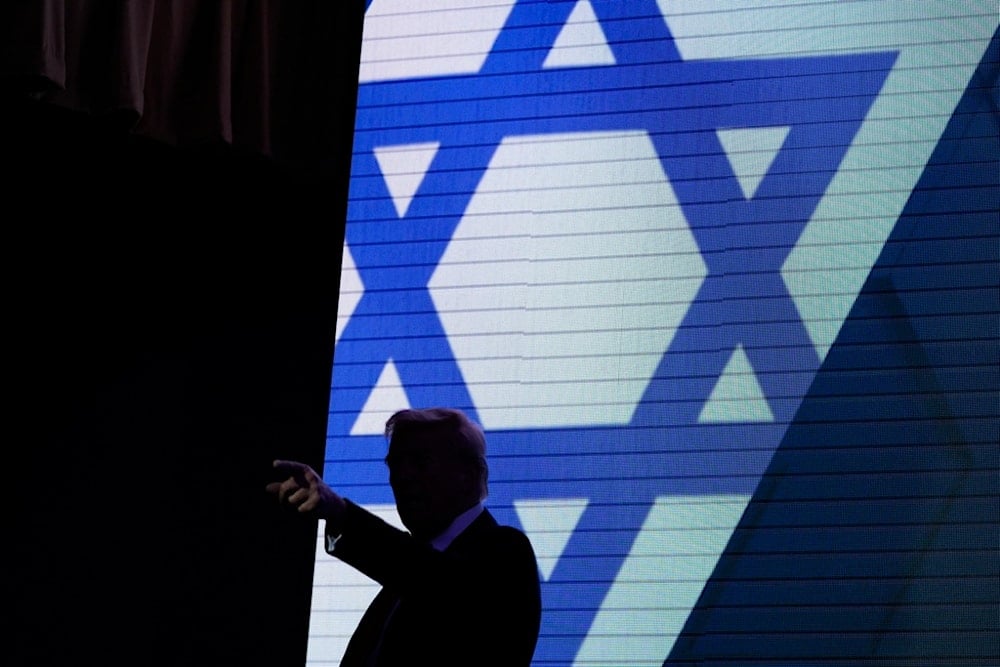Trump must deprioritize Middle East to save US: Responsible Statecraft
Jonathan Hoffman explains that Trump has two options: either disentangle the US from Middle Eastern affairs or risk more issues that jeopardize its domestic and international interests.
-

Republican presidential nominee former President Donald Trump acknowledges the crowd as he exits the stage after speaking at the Israeli American Council National Summit, Thursday, Sept. 19, 2024, in Washington. (AP)
President-elect Donald Trump has inherited the wars his Democratic predecessors, Joe Biden and Kamala Harris, started in the Middle East and kickstarts his four-year tenure with the risk of a greater regional conflict and potential US involvement, a direct result of a broader, self-defeating US Middle East policy, according to the Responsible Statecraft.
Jonathan Hoffman, the author of the op-ed titled "Trump now faces 'out of control' conflict in the Middle East", says the solution to the conundrum Trump faces is the "disentanglement and deprioritization" of the Middle East policy.
According to the author, "Israel" has been leading the way for the past 13 months while the US follows.
Thus, Hoffman relates Washington's deep involvement in the Middle East, its "empty threats" and "tepid warnings" to the Israeli occupation, while pumping it full of military aid and weapon provisions, as well as its unmoved diplomatic cover that shields "Israel", to the continuation of the wars in Gaza and Lebanon, both of which are entirely lacking of any achievable political goals.
While the wars rage on in Lebanon and Gaza, amid unrelenting resistance by Hezbollah and Hamas, the US has also found itself in the middle of escalations between "Israel" and Iran by extending aid and defending the occupation against Iran's retaliatory operations in April and October.
Trump should serve the US first
The US' infinite and ardent support of "Israel" and its regional aggression jeopardize not only regional stability but also Washington's own interests. Therefore, Hoffman suggests that Trump must shred the carte blanche support the US has always provided Netanyahu with, and work on detaching his country from Israeli policies and Middle Eastern affairs.
US foreign policy heavily revolves around Middle Eastern affairs, which often diverts attention and resources from far more pressing domestic and international concerns. While the region no longer holds central strategic importance for the US, existing interests like ensuring oil flow, allegedly combating terrorism, and preventing a regional power from dominating are achievable without heavy US involvement.
The expanding US engagement in the Middle East risks overextending the country, especially as it remains focused on supporting Ukraine against Russia and countering China in the Indo-Pacific. With the national debt nearing $36 trillion and massive budget deficits, continued involvement in the region could lead to an economic crisis. Maintaining current levels of commitment to the Middle East is thus rendered unsustainable, Hoffman explains.
Right now, by deprioritizing the Middle East and detaching the US from its affairs, Donald Trump has the opportunity to shift the reality his country has created for itself.
Where does Trump stand?
In late October, two informed sources divulged that former US President Donald Trump had informed Israeli occupation Prime Minister Benjamin Netanyahu that if he wins the election, he wants "Israel" to end the war on Gaza by the time he enters office.
According to the former US official, Trump's pitch to Netanyahu was not explicit, and he may perhaps support "residual" IOF activities in Gaza as long as the war formally ends.
Trump has recently signaled that he would offer "Israel" more leeway in its war, blasting US President Joe Biden for attempting to limit the occupation's response to Iran's Operation True Promise 2.
However, two top Israeli officials told Israeli media they were concerned by Trump's repeated demands to end the aggression, believing that failure to do so may lead to a clash if the former US president wins next week's election and returns.
"There are internal political constraints to ending the war quickly," one of the Israeli officials said.
A politician from the Israeli opposition explained that "Netanyahu has managed clashes with Democratic presidents without paying a heavy price. In fact, he campaigns on his ability to stand up to them," adding that a fight with Trump was something "he'd want to avoid, but [Finance Minister Bezalel] Smotrich and [Police Minister Itamar] Ben-Gvir may not let him."

 4 Min Read
4 Min Read








